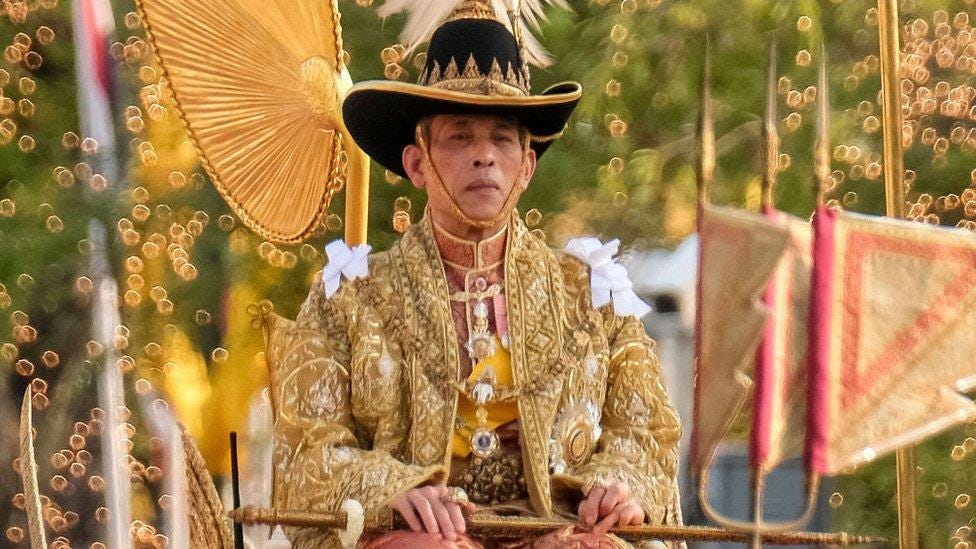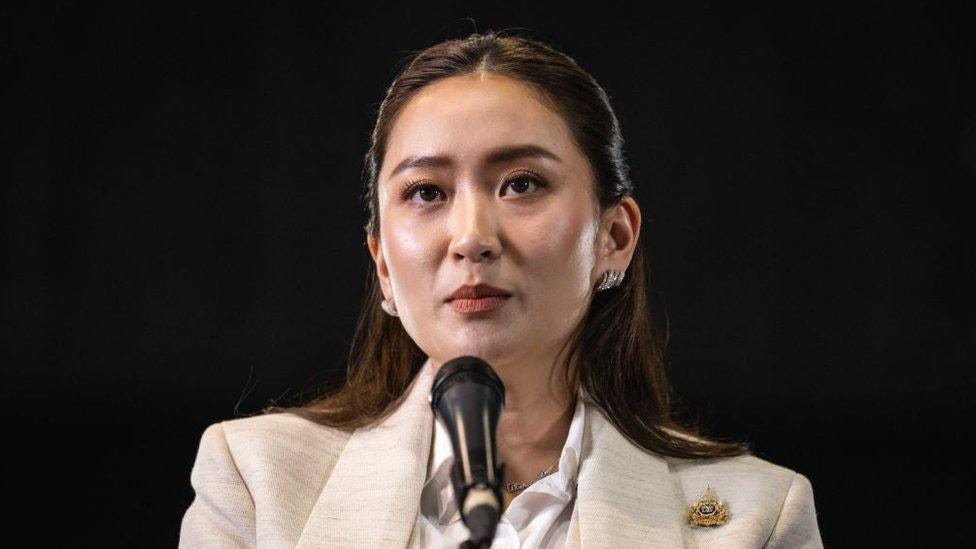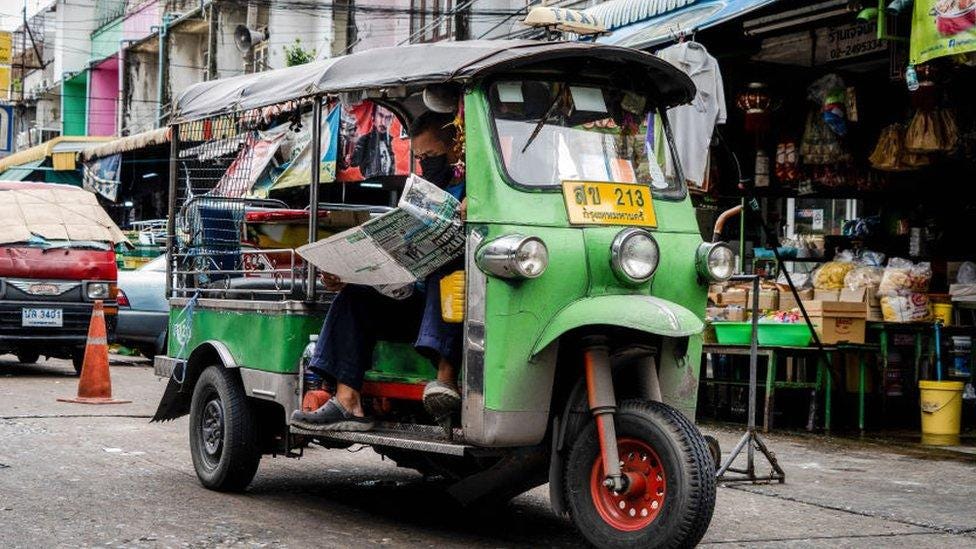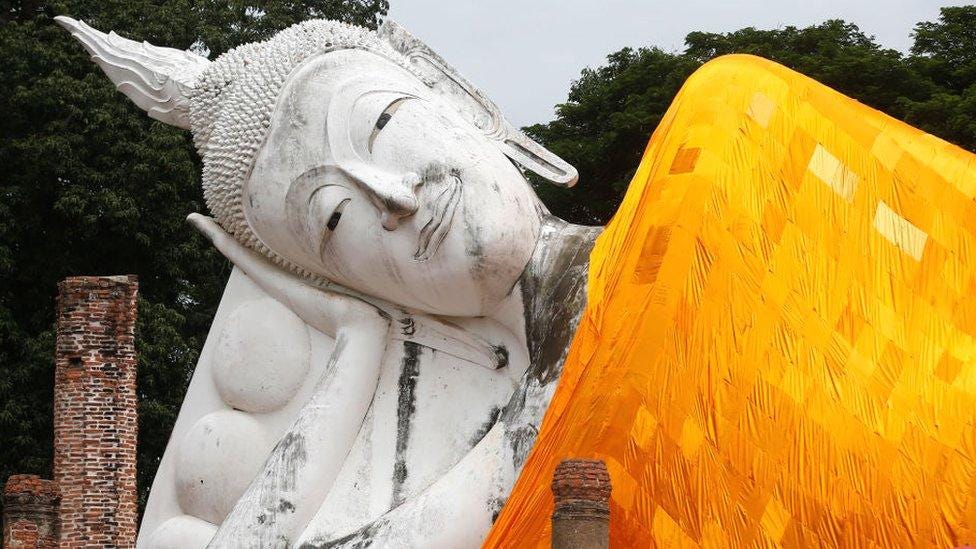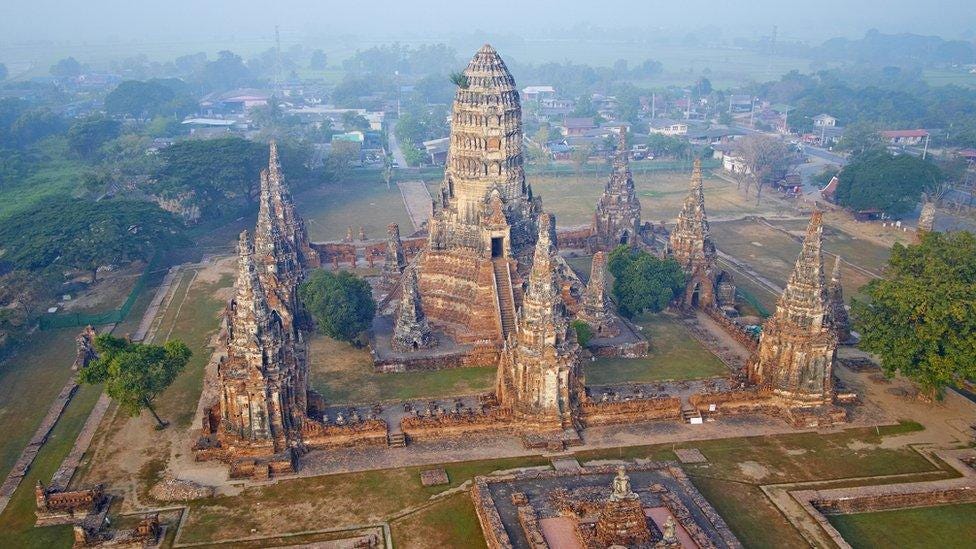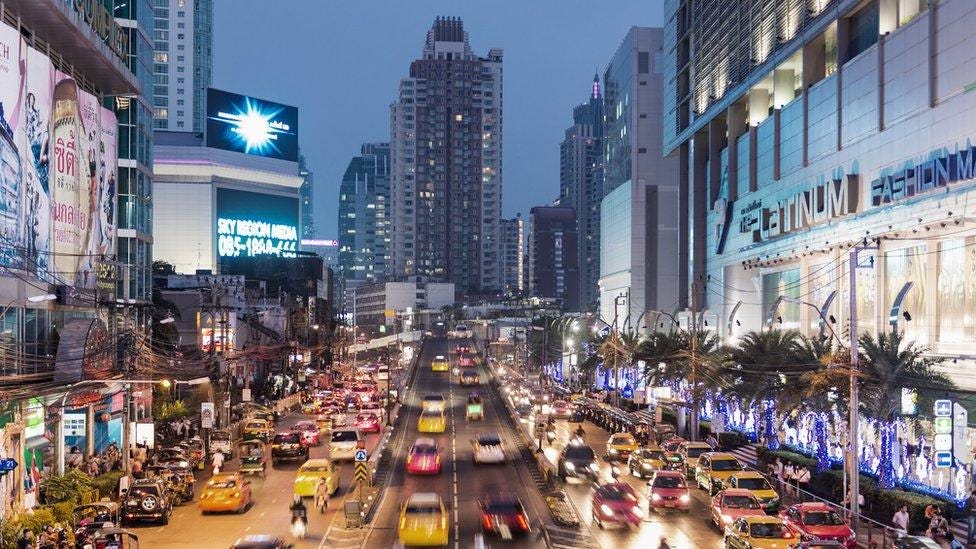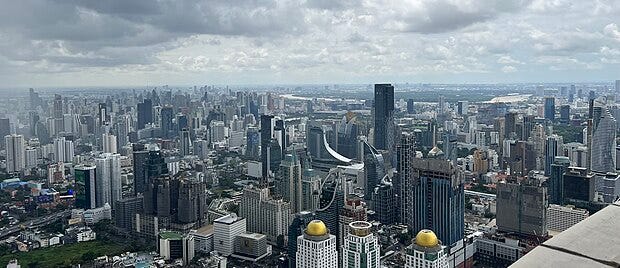Thailand country profile
Thailand is a Southeast Asian country. It's known for tropical beaches, opulent royal palaces, ancient ruins and ornate temples displaying figures of Buddha.
Thailand is the only country in South East Asia to have escaped colonial rule. Buddhist religion, the monarchy and the military have helped to shape its society and politics.
The military has ruled for most of the period since 1947, with a few interludes in which the country had a democratically elected government.
Since 2001, Thai politics have been dominated by the deep split between supporters and detractors of Thaksin Shinawatra, who served as prime minister until he was ousted by the military in 2006.
In 2023, Thailand's opposition parties secured by far the largest number of votes in national elections, as voters delivered a significant rebuke to the military-backed government that had ruled since the 2014 coup.
KINGDOM OF THAILAND: FACTS
Capital: Bangkok
Area: 513,120 sq km
Population: 65.9 million
Language: Thai
Life expectancy: 75 years (men) 83 years (women)
LEADERS
Head of state: King Maha Vajiralongkorn
Thailand is a constitutional monarchy. Maha Vajiralongkorn, the 10th Thai monarch of the Chakri dynasty, was proclaimed king in December 2016.
He succeeded his father King Bhumibol Adulyadej, the world's longest reigning monarch at the time, who died in October that year.
Prime minister: Paetongtarn Shinawatra
Thailand's parliament picked Paetongtarn Shinawatra, the daughter of billionaire tycoon and former leader Thaksin, as prime minister in August 2024.
At 37, she is the country's youngest PM and the second woman in the post, after her aunt Yingluck.
Her selection came just two days after former PM Srettha Thavisin was dismissed by a constitutional court. Both are from the Pheu Thai Party, which came second at the 2023 election but formed a ruling coalition.
Ms Paetongtarn faces the difficult task of reviving Thailand's stalled economy and avoiding the military coups and court interventions which have deposed four previous administrations led by her party.
"I really hope that I can make people feel confident that we can build opportunities and to improve the qualify of life and to empower all Thais," Ms Paetongtarn told reporters after the vote.
Ms Paetongtarn is the fourth member of the Shinawatra clan to become prime minister in the past two decades.
The other three, including her father Thaksin and aunt Yingluck, were deposed by military coups or constitutional court rulings.
Under Thailand's constitution drafted under military rule, both houses of parliament must vote to select a new prime minister.
Thailand's military has a seized power 12 times since the end of the absolute monarchy in 1932.
MEDIA
The government and military control nearly all the national terrestrial television networks, and operate many of Thailand's radio networks.
The media are free to criticise government policies, and cover instances of corruption and human rights abuses.
However, a strict lese majeste law prohibits media in Thailand from reporting anything that could be deemed critical of the royal family, and journalists tend to exercise self-censorship regarding the military, the judiciary and other sensitive issues.
TIMELINE
Some key dates in Thailand's history:
20,000BC - Evidence of continuous human habitation in present-day Thailand from this date onwards.
c. 2000BC - Beginnings of rice cultivation.
c. 1250-1000BC - Ban Chiang in northeast Thailand, currently the earliest known centre of copper and bronze production in South East Asia
500BC - Iron usage appears.
68-550AD - Funan Kingdom, centred on the Mekong Delta, becomes the area's first known regional power.
802-1431 - Khmer Empire, centred on Angkor Wat in Cambodia, encompasses much of modern Thailand.
1238-1438 - Sukhothai Kingdom. Pho Khun Bang Klang Hao, a local Tai ruler, becomes the first ruler of the kingdom, based around Sukhothai in north-central Thailand, having rallied resistance to Khmer rule. In 1438 it falls under the influence of the neighbouring Ayutthaya.
1351-1767 - Ayutthaya Kingdom, centred on the southern city of Ayutthaya, becomes on great powers of Asia, and is considered the precursor of modern Thailand.
Image caption,
Ayutthaya reached its peak under the reign of King Narai the Great
1569-1584 - Ayutthaya temporarily becomes a vassal state of Taungoo Burma.
1656-1688 - Under Narai the Great, Ayutthaya makes commercial and diplomatic links with countries in the Middle East and West. It develops close diplomatic relations with Louis XIV in France. The kingdom sees intense rivalry between the competing Dutch, French and English trading companies.
1759-1760 and 1765-1767 - Burma's Konbaung dynasty invades Ayutthaya.
1767 - Ayutthaya is captured by Burmese forces and destroyed.
1767-1782 - Thonburi Kingdom. Seat of power is moved south to Thonburi, now a district in present-day Bangkok. Founded by Taksin the Great, who reunites the country following the collapse of the Ayutthaya Kingdom.
1782 - Rattanakosin Kingdom founded. Army commander Phra Phutthayotfa Chulalok Maharaj overthrows Taksin and as Rama I becomes the first monarch of the reigning Chakri dynasty of Siam, now Thailand. Rattanakosin, now Bangkok, becomes the new capital of the reunited kingdom.
1896 - Rival colonial powers Britain and France agree to make Thailand's central Chao Phraya valley a buffer state between their territories in India and Burma (now Myanmar) and France's occupation of Indochina.
1932 - Absolute monarchy gives way to constitutional monarchy with parliamentary government.
1939 - Decree changes the name of the country from "Siam" to "Thailand".
1940-41 - Following the fall of France in World War Two, Thailand fights a brief conflict with colonial Vichy France resulting in Thailand gaining some Lao and Cambodian territories.
1941 - Japan attacks US fleet at Pearl Harbor and invades Dutch East Indies. Japanese armies cross Thailand to invade Malaya and Burma. Thailand allies with Japan.
1947 - First post-1945 military coup. The military retains power continuously until 1973.
1954 - Thailand joins the Southeast Asia Treaty Organization (Seato) to become an active US ally.
1961 - Following the United States' increasing involvement in the Vietnam War, the US secretly agrees to protect Thailand. From the mid-60s onwards, The US uses Thai air bases to bomb North Vietnam.
1965-83 - Communist insurgency: Fought mainly between the Communist Party of Thailand (CPT) and Thai government forces, the fighting winds down after 1980 following the announcement of an amnesty. More than 7,000 soldiers, government officials, insurgent and civilians are killed in the fighting.
1975 - End of the Vietnam war: South Vietnam collapses following the US withdrawal of military support, North Vietnamese forces sweep south and occupy Saigon.
1997 - Asian financial crisis ends Thailand's 40 years of economic growth.
2001 - Populist Thaksin Shinawatra becomes prime minister for first time.
2006 - Military leaders stage a bloodless coup.
2011 - Pro-Thaksin Pheu Thai party wins a landslide victory in elections and his younger sister, Yingluck Shinawatra, becomes prime minister.
2014 - Military junta led by General Prayuth Chan-ocha seize power. The junta binds future governments to a 20-year national strategy 'road map' it laid down, effectively locking the country into military-guided democracy.
2016 - King Bhumibol Adulyadej dies after 70 years on the throne, and is succeeded by his son, Maha Vajiralongkorn.
2023 - Thailand's charismaic former PM Thaksin Shinawatra is jailed on returning to the country after 15 years in self-imposed exile, though many believe he has done a deal meaning he will only serve a short period in prison.
Image caption,
Some 11 million people live in Bangkok
BBC Monitoring
Overview
Thailand is a Southeast Asian country. It's known for tropical beaches, opulent royal palaces, ancient ruins and ornate temples displaying figures of Buddha. In Bangkok, the capital, an ultramodern cityscape rises next to quiet canalside communities and the iconic temples of Wat Arun, Wat Pho and the Emerald Buddha Temple (Wat Phra Kaew). Nearby beach resorts include bustling Pattaya and fashionable Hua Hin.
About
Fertility rate: 1.32 births per woman (2022) World Bank
GDP growth rate: 1.9% annual change (2023) World Bank
Gross domestic product: 515 billion USD (2023) World Bank
GDP per capita: 7,182.03 USD (2023) World Bank
Gross national income: 1.645 trillion PPP dollars (2023) World Bank
Economy of Thailand
Article Talk
The economy of Thailand is dependent on exports, which accounted in 2021 for about 58 per cent of the country's gross domestic product (GDP).Thailand itself is a newly industrialized country, with a GDP of 17.922 trillion baht (US$514.8 billion) in 2023, the 9th largest economy in Asia. As of 2018, Thailand has an average inflation of 1.06% and an account surplus of 7.5% of the country's GDP.[28] Its currency, the baht, is ranked as the tenth most frequently used world payment currency in 2017.
Economy of
Thailand
Bangkok, the commercial hub of Thailand
Currency
Thai baht (THB, ฿)
Fiscal year
1 October – 30 September
Trade organisations
WTO, APEC, IOR-ARC, ASEAN, RCEP
Country group
Developing/Emerging
Upper-middle income economy
Newly industrialized country
Statistics
Population
Increase 69,950,844 (2021)
GDP
Increase $545.34 billion (nominal; 2025 est.)
Increase $1.857 trillion (PPP; 2025 est.)
Source: Wikipedia




